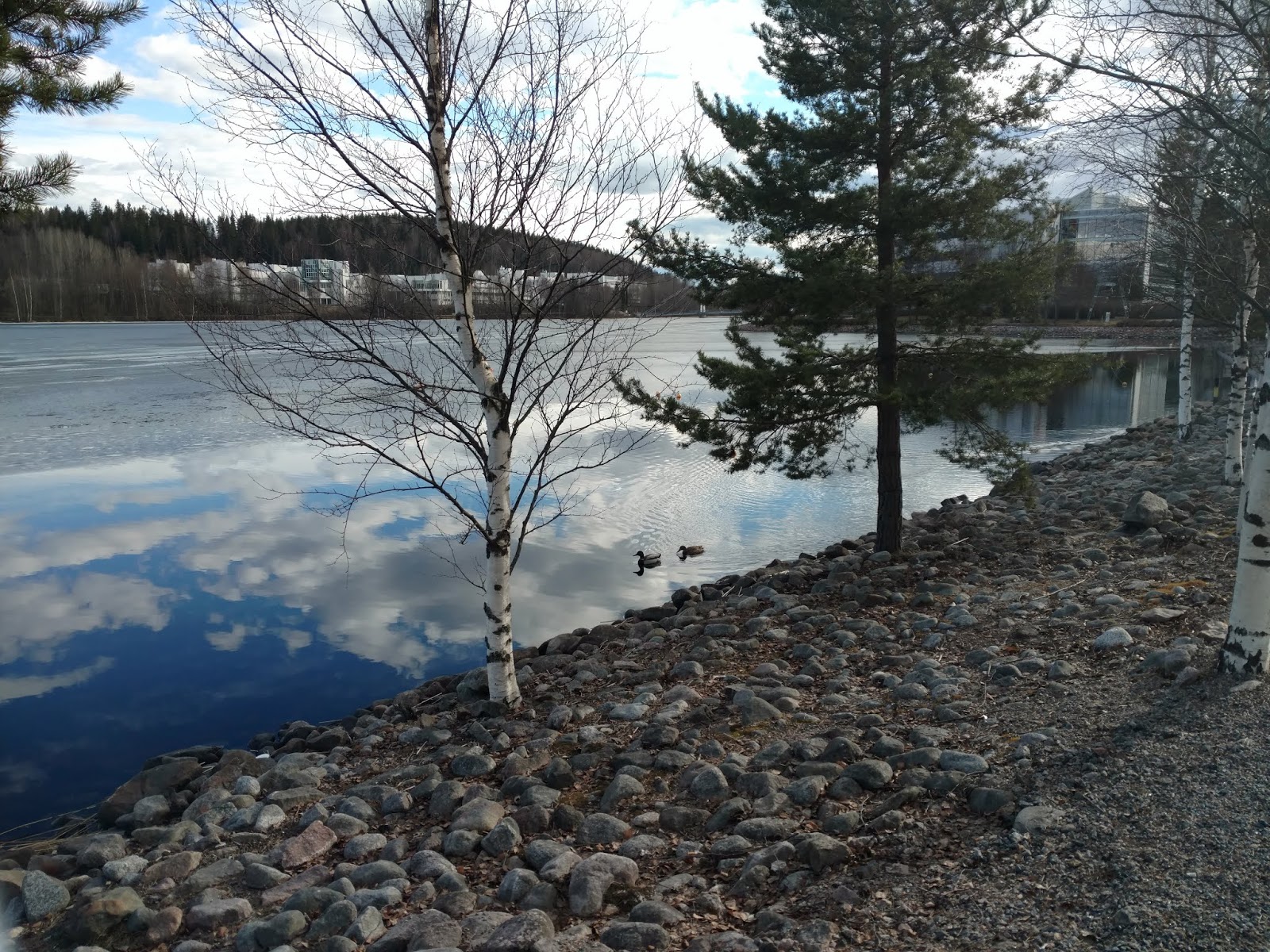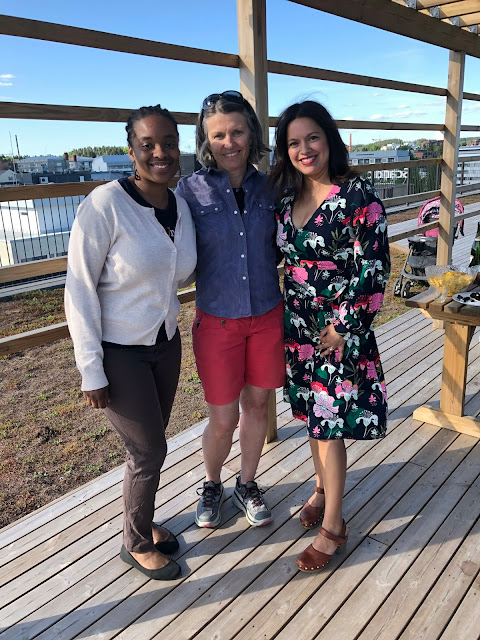On the afternoon of my second day shadowing Sara Kall,
nature school teacher from Kokkola, I was prepared to sit in the back of a
room, taking notes on my laptop, while Sara trained 7 early education teachers at Triselvran Pre-School.
The two-hour training was a service that nature schools
provide to traditional schools. Because of the vast autonomy of schools and
teachers in the educational system of Finland, some schools may not sign up for
the sponsor program that sends children for monthly full day field trips to
nature. Instead, they may choose to sign up for four days a year of this. Or
they may choose to request Sara’s services to train teachers to do the nature
activities themselves.
We were at one of these such trainings, and Sara had her box
of tricks with her. Upon arrival at 4:00 pm, we set up the box…in the snow, on
the playground. Of course, we would be outside…in 10 degrees….it’s a nature
training! I was sheepish.
For the next two hours, Sara trained teachers on a variety
of ways to conduct educational games in nature. There were language, art, play,
and mathematics games.
But what stunned me completely was the participation of the
Finnish teachers. Despite the late hour and the increasing darkness, the
teachers were fully engaged, in good spirits, and enthusiastic. They chased
each other, laid themselves down on the snow to make shapes and symbols, and constructed objects from twigs, rocks, and
snow.
 |
| Lining up in teams. Each races to collect letters sprinkled on the ground. |
 |
| Now let's make words! |
 |
| Kind of like Scrabble, but in the snow, and in multiple languages. |
 |
| Roll the die and see what shape your team must make! |
 |
| Cold? What cold? |
The teachers ranged from early career to veteran teachers,
but this did not mean there was any less participation from any of them.
Now you may wonder why this surprised me. In the U.S.,
teacher training on school sites tends to be top down and irrelevant in the
eyes of many teachers. For example, in Los Angeles, teachers are regularly forced
to sit through faculty meetings after a long day of teaching, perhaps to watch
an instructional video on how to avoid getting contaminated with blood-borne
pathogens or on how to conduct the yearly standardized tests.. I have been
trained, once a year, for at least the last 22 years in these topics. The
information hasn’t changed. The procedures are still relatively the same. But
whether you are an experienced teacher or a novice, you receive the same
training. It is demoralizing.
Well, demoralized these Finnish teachers were not.
I think it has taken me so long to write about this because
there is a deep meaning to what I saw and heard. Teachers who are respected,
trusted, taken care of, and viewed as instructional experts are very satisfied
people.
Now there is a lot to digest here. How do regular Finns even
become teachers? Well, it’s not easy. A Master’s degree is required and both
undergraduate and graduate courses are research oriented. Teacher candidates
are monitored and interviewed, and in the end, only about 7% are even accepted
into teacher education programs. It is harder to become a teacher than a doctor
or lawyer.
What does this mean for the U.S.? I would suggest we not
look at the national scene; let’s look at state education. It is much easier to
have quality control, state by state. In states like mine, I would reduce it
even further into regions: North, Central and South.
I think many times we are reluctant to give teachers
autonomy because we may not trust in their preparation. Never mind that
entering the field of education in the US usually means teachers are partial towards helping, guiding, and caring for pupils. It
is true of virtually all teachers I’ve worked with. We need to tackle teacher
preparation quality while we discuss solutions to the teacher shortage.
The teacher strikes and protests rising up across the land
cannot send a more loud and clear message that the system is broke and needs to
be fixed. Money is definitely part of the solution in states where teachers
must work two or three jobs to make ends meet, but respect would be just as
welcomed, in some cases even more than money. It would be nice to have both.
It is hard to compare income between Finnish and American
teachers, because even though the average salary in Finland is in the $40-$50
thousand range, teachers have smaller class sizes, free health insurance, free
undergrad and grad school education, subsidized child care, ample parental
leave, shorter school days, and a break every hour (and by free, yes it is paid with the high taxes Finns are comfortable paying.) One school I visited even
has a nap room for teachers. And the respect…it is so nice to travel through
Finland and introduce myself as a teacher.
 |
| Have you ever seen teachers look this happy at 5:00 pm after a teacher training and full day of work? |
At the end of the training, I took a picture of the happy
teachers and realized that all over Finland, teachers were doing this. Triselvran Pre-School was
not an anomaly. This is why there is no such thing as a “better school” in a
“better neighborhood” with “better teachers.” When you make education a value,
and truly fund it, all schools are better. And the society wins.












Comments
Post a Comment